This post may contain affiliate links, which means I’ll receive a commission if you purchase through my links, at no extra cost to you. Please read my full disclosure for more information.
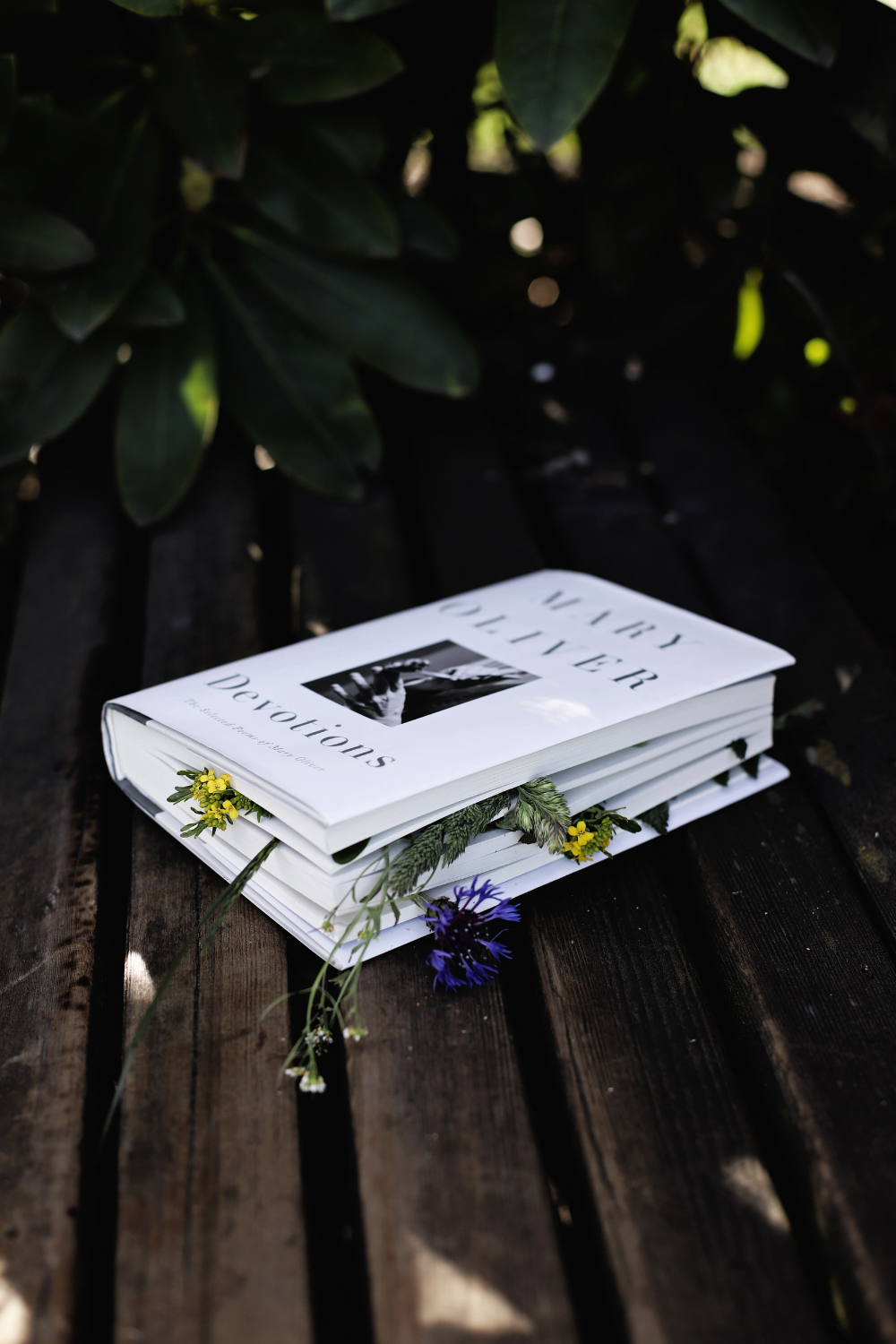
Every year, I read a lot of poetry collections – both modern and traditional poetry. As it goes, poetry is not dead. And that fact is a solace to me an avid poetry lover, reader, and writer.
In this instance, I am using the term modern poetry very loosely as most of these collections have been published in the last year up to the last decade.
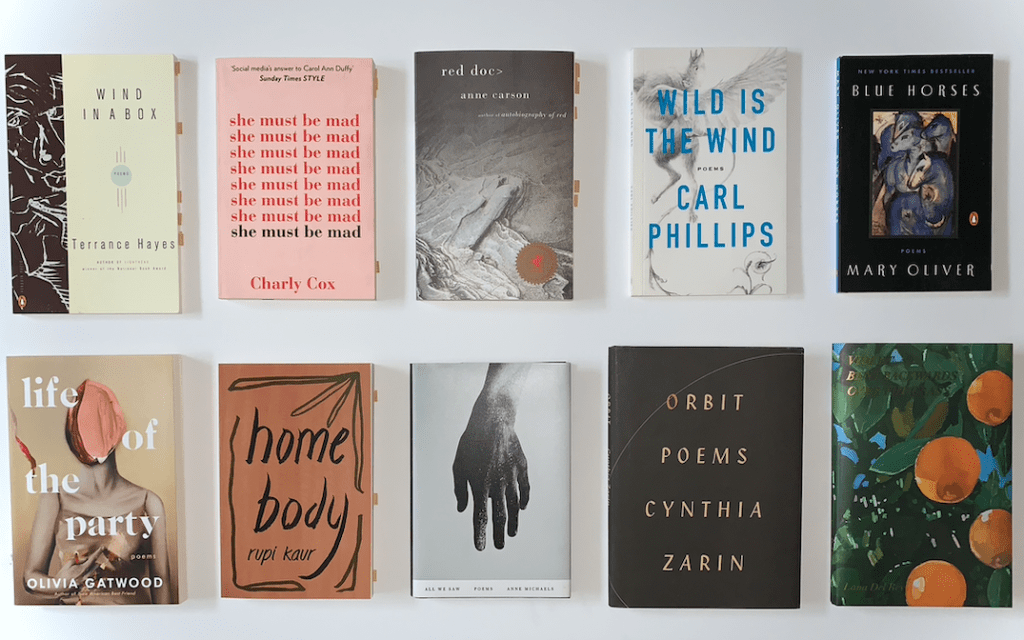
Additionally, I read up to 75 to 100 books a year.
In 2020, I read 90 books including these modern poetry collections. If you are interested in everything else that I have read and enjoyed this year, and that is not poetry related, you can read my separate blog post here.
SEE ALSO: Top 20 Books I Read in 2020.
1. “Violet Bent Backwards Over the Grass” by Lana Del Rey
“Violet Bent Backwards Over the Grass” is the fist poetry collection by the world famous singer and songwriter Lana Del Rey. It is without a shadow of a doubt, one of the most eloquently written and raw modern poetry collection.
Lana Del Rey truly has a way of playing with words to optimize feelings of longing, betrayal, regret, and mental anguish. This reads like an intimate love letter between her and her typewriter.
Furthermore, there are pictures dispersed throughout this collection that are beautiful and impactful to the contents of the poetry as most were taken and produced by Lana herself.
Thus, this collection feels even more authentic and real because the poems are typewritten and the reader can even see the pen marking corrections.
Even her original photography were very vintage and dreamy looking. There are only some images of paintings that are cited at the very end.
Lana even has a whole section for her composed Haikus closing off her collection, which breaks off this tension and uneasiness of some of the long sad poems.
Overall, this is a very beautiful collection to read and flip through. I was not disappointed, if anything I only wished for it to be longer.
I attached one of my favorite of her poems ‘Salamander’ as well as one of her photos:
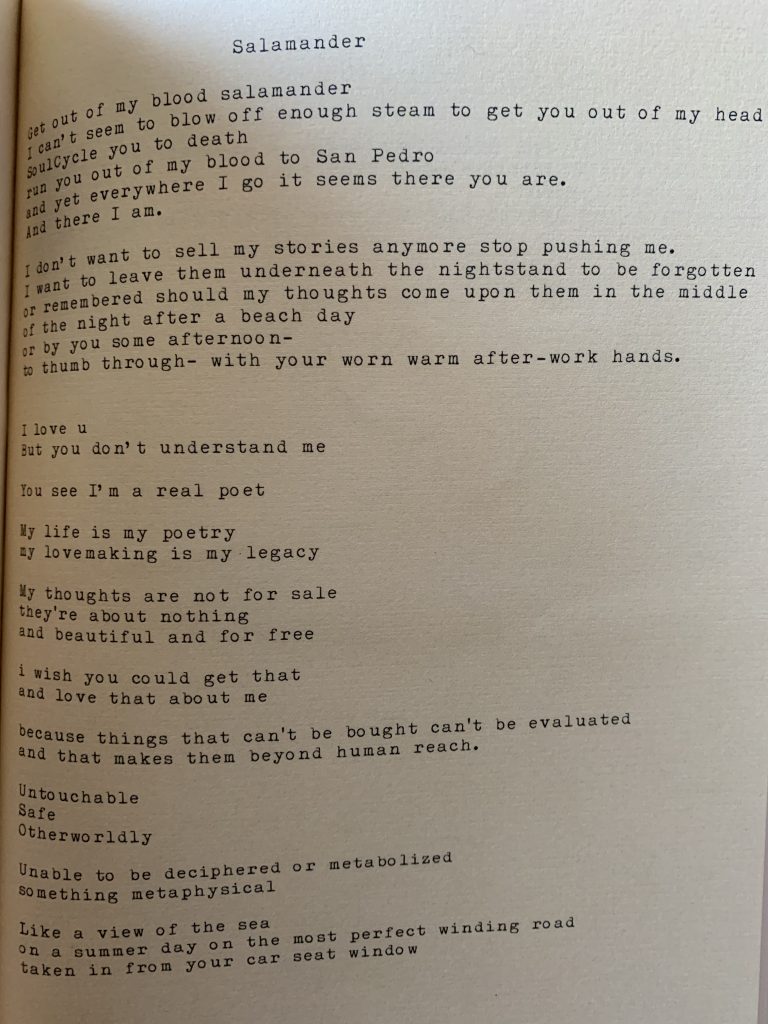
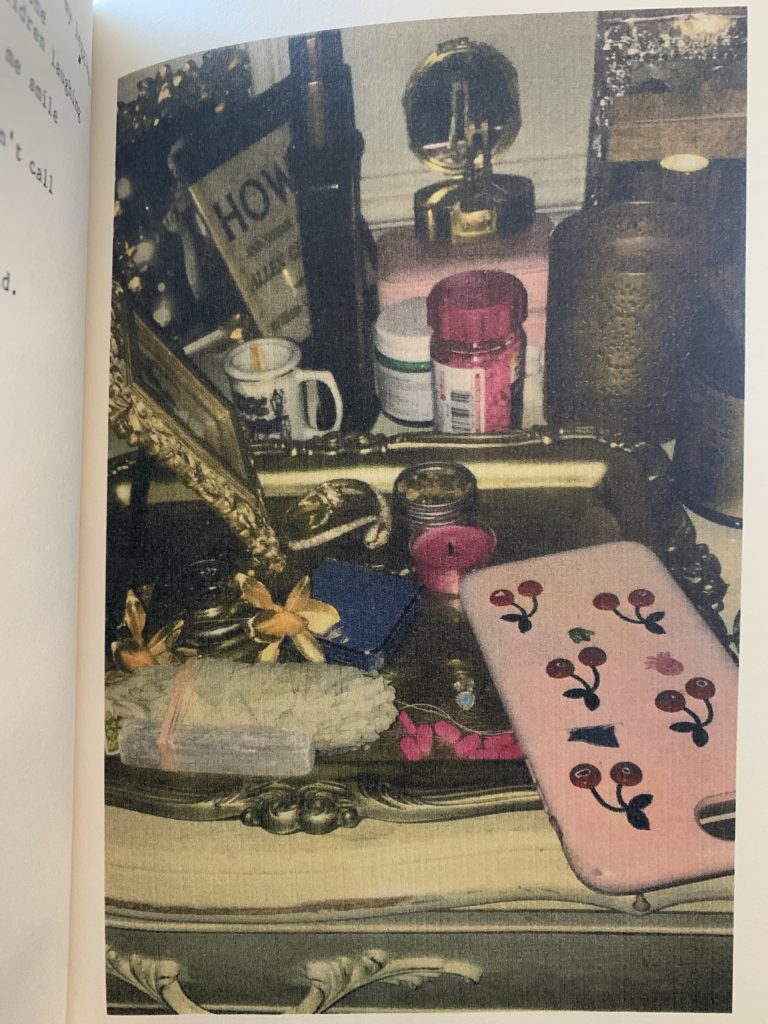
2. “Wind in a Box” by Terrance Hayes
“Wind in a Box” is an eloquent collection that explores freedom within containment, hence, its title.
Terrance Hayes is masterful at playing with the modern poetry genre. He touches on personal history and identity while presenting his poems in this highly playful yet heavy construction.
One moment he is poking fun and the other he is exploring – in a sort of historiographic manner – society’s racial tensions as Hayes is himself African-American.
Furthermore, a lot of his poems take on a narrative form which makes for an interesting more involved reading of his poetry.
There is a lot traces of the Blues in this collection as his rhymes and style are very alive in their beats. A certain musicality permeates through the poems.
My absolute favorite poem is actually the opening of the collection titled after the collection [‘Wind in a Box’]:
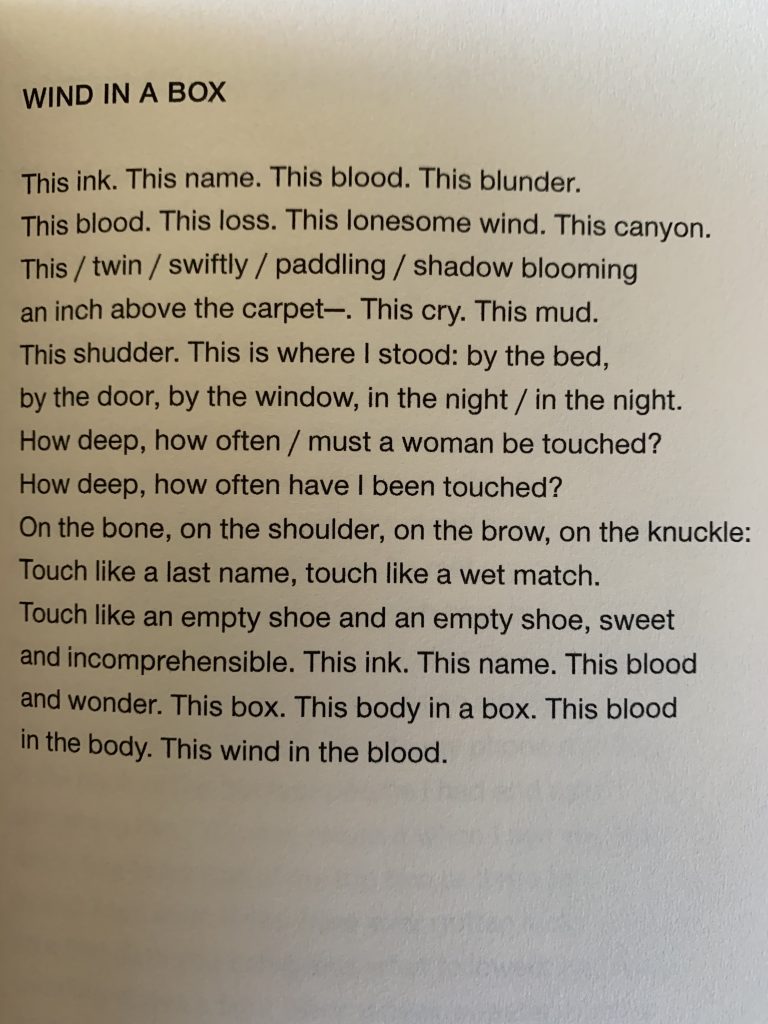
3. “home body” by Rupi Kaur
“home body” is the third poetic collection by Rupi Kaur. As her first collection “Milk and Honey” dealt greatly with survival, and her second “The Sun and Her Flowers” with recovery; now her third collection deals with a mixture of both as well as self-acceptance, creativity, and community.
The cleverness on home body concentrates on the ‘home’ as Rupi is born in Sikh family in Punjab, India. There are many poems in here that touch upon immigration and her parents struggle and perseverance. Community is ultimately what allows her to be uplifted in the dark times and her family and friends gives her strength.
And then there is the ‘body.’ In the body, there is the concentration on mental and physical health. Rupi Kaur talks a lot about the female body and is not shy to express her femininity or to respond to her body’s needs: nourishment, rest, pleasure, to name a few.
Furthermore, the ‘home’ and the ‘body’ join in different matters. Where in one place; it is a place of growth and self-love, in the other place; it can be a place of trauma and destruction. The point of the collection is to look at the past and the present in order to formulate a future in which the home body can be found and accepted in this self journey.
As were her other collections, this collection is poignant in its simplicity but hard hitting in its emotions. Accompanied with her hand-drawn drawings, flipping through these pages feels like reading through someone’s private inner-most thoughts. Yet, they are presented in this poetic resonance that have been heavily associated to Kaur’s modern poetic adaptation.
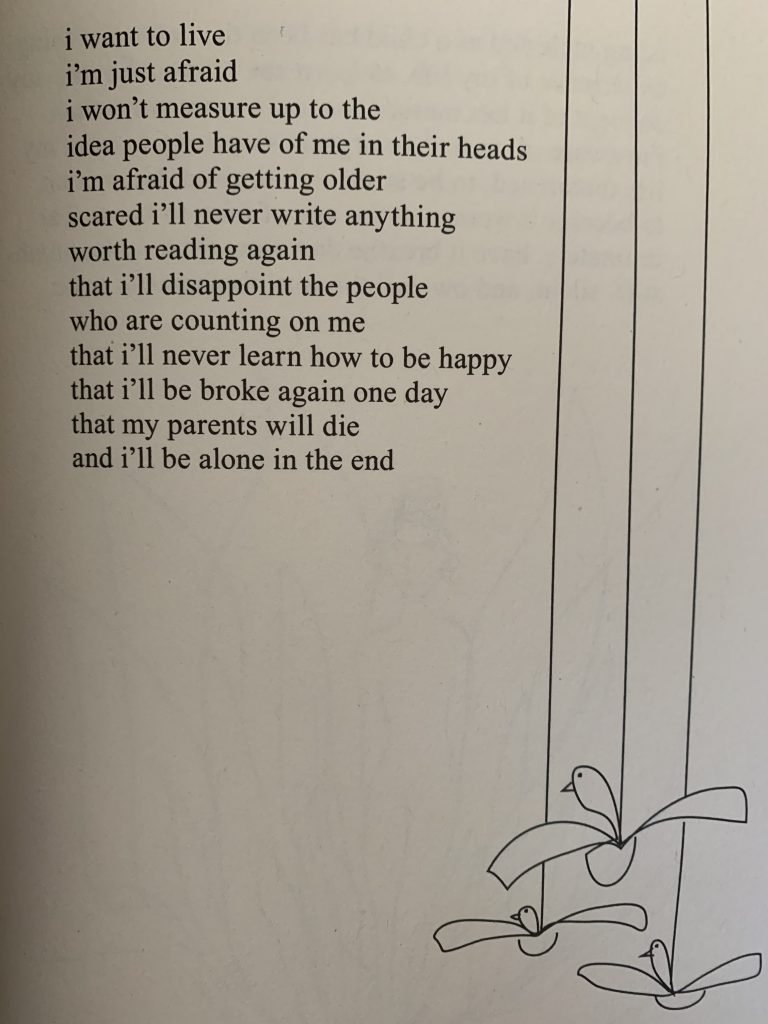
4. “Life of the Party” by Olivia Gatwood
“Life of the Party” is another feminist modern poetry collection. Olivia Gatwood is known for her spoken word poetry much like Rupi Kaur, which gives her poems a snapping quality to them.
In her collection, she focuses her critical lens on the hyper-fixation of romanticizing violence against women with numerous movies and podcast depicting graphic scenes against white women.
Truly, this was a bone chilling collection. It really made me feel and reflect on past experiences. Women go missing all the time … and society has normalized it, has sensationalized white women disappearing but ignored, silenced, the disappearances of women of colour.
Society continuously forgives (justifies) men actions and blames women for their behavior still to this day.
Gatwood explores her own adolescence as she had been subjugated to all kinds of attention.
The language employed is what makes the read-through so visceral. Olivia Gatwood knows the right chord to strike with the intensity of her words, and the crafting of her poems, as well as the haunting thread following through all of her poems. It is truly a haunting collection and after finishing it, the reader is still left thinking on the subject matters.
Furthermore, this collection talks a lot about victim and perpetrator and the blurred lines within what constitutes physical, mental, emotional abuse and violation.
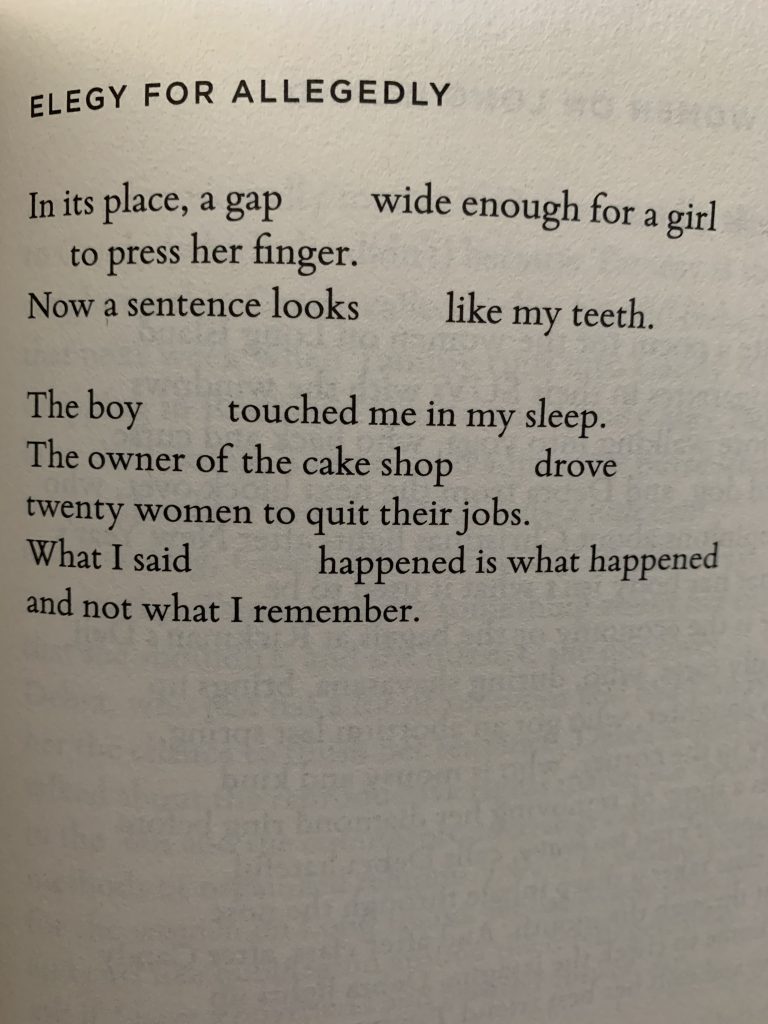
5. “Wild is the Wind: Poems” by Carl Phillips
“Wild is the Wind: Poems” is a very meditative poetry collection. In which, Phillips takes a philosophical approach to dissecting the common emotions. There is a lot of despair in this collection in which an idealized form of redemption and reconciliation can not be achieved.
Phillips depicts love through a variety of forms: as it can be damaging, restless, and reckless. A lot like wind.
The confusion between ideas – abstract – versus the concrete, the thing in itself. Despair and loss – are tangible within these pages as well as remorse.
These prose poems underline the elements of nature that are used throughout the collection in order to reflect on the past in this enigmatic way to highlight what it has taught. He looks at the past as simultaneously history and as memory, which is very characteristic to thoughtful, mediative poetry.
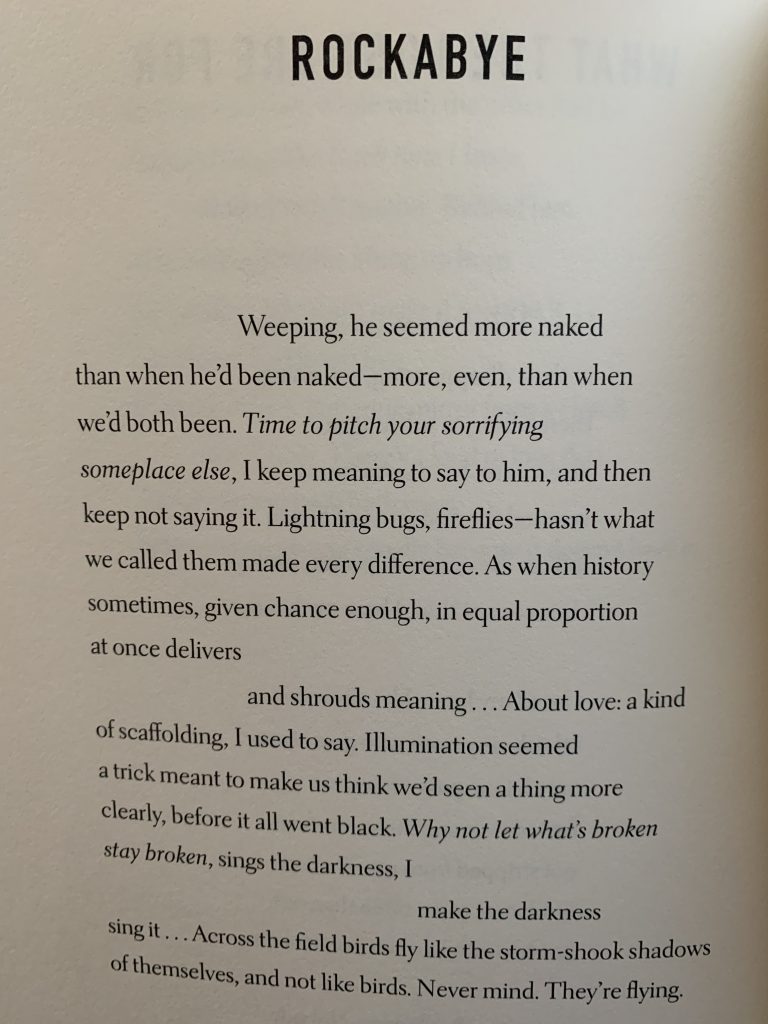
6. “All We Saw” by Anne Michaels
“All We Saw” is a poetry collection by well-loved Canadian author Anne Michaels. She wrote the fantastic, heartbreaking novel called “Fugitive Pieces” which is BY THE WAY one of my favourite novels ever.
Hence, I knew going into her poetry collection that I would not be disappointed in the slightest. I had so much faith in her and it could have gone terribly wrong to have such high expectations beforehand. Usually in those cases, I end up disappointed.
Michales explores so acutely the topics of death, loss, love, and passion.
In this one, she explores the intense connection between lovers. Michales has a way with words in order to make grief so palpable. Her works are always lyrical and they encapsulate suffering attentively.
A lot of poetry highlights awareness; awareness of what is suppressed or inducible outside of the metaphoric language.
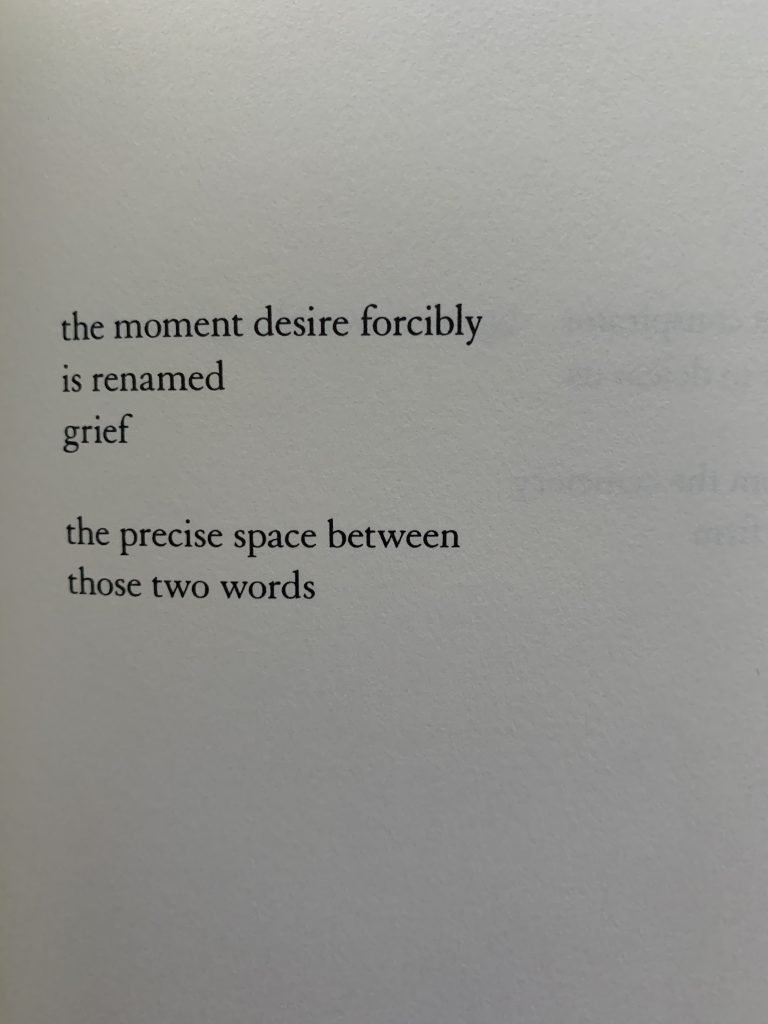
7. “Orbit: Poems” by Cynthia Zarin
“Orbit: Poems” is Cynthia Zarin’s fifth poetry collection. Although I have never read any of her other collections, I quite enjoyed this one.
There is a cosmic feeling to this one since the orbit she is defining is the atmosphere created by our personal and collective experiences in this world. As she navigates this orbit, she is attempting to find an answer that is not obvious to uncover. And the reader is invited to join along this journey.
And in this matter, Zarin writes so effectively of the modern day items in our lives and puts them in orbit, in movement.
Additionally, I would like to preface that this collection can be quite challenging at times to read and decipher. But it did not lessen my enjoyment. I like when poetry perplexes me and it makes even more exciting because modern poetry has usually a straight forward intent and purpose and Zarin is a bit less obvious. She makes you work for it.
Furthermore, the syllabic and structural symmetry in some of her poems will catch you off guard if you are a poetry connoisseur. I took Poetry in my undergrad and yet I am not that well-versed, my eyes are untrained to spot every sleight of hand Zarin presents.
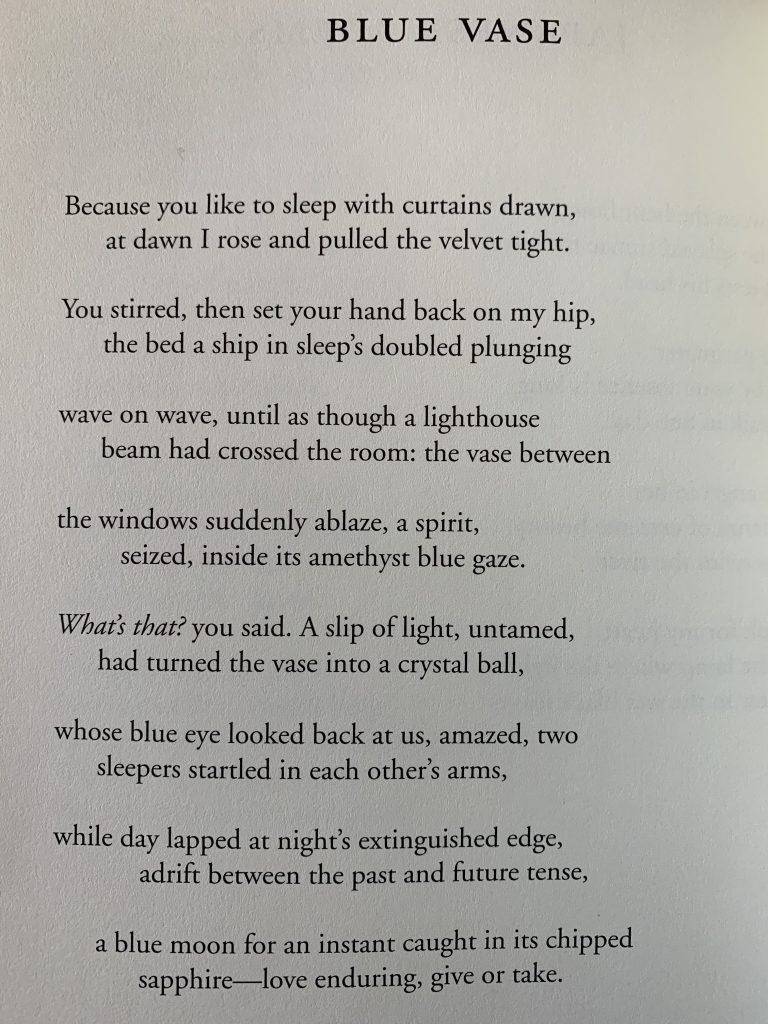
8. “Red Doc>” by Anne Carson
“Red Doc>” is the sequel to of my all time favourite rite poetry book, “Autobiography of Red.”
I find that you can read this one independently but you definitely should not miss out on the first book.
I saw Anne Carson in person as she gave a talk on “stillness” and her talk blew my mind and gave me shivers. She is a professor of Classics and this transcends beautifully into her works as she plays with mythology in her projects.
In the first book, she takes the myth of Herakles and spins it in a modern take in which a boy named Geryon falls in love with him. “Red Doc>” explores the life between the characters after the myth takes place but she has changed the names and the formatting style of this second novel in verse. The first book, “Autobiography of Red” was also a novel in verse.
These two novels in verse will tug on your heart strings. The writing is ethereal, the characters are complex, and the emotions are too raw to not leave a long lasting impression.
After reading Anne Carson, I am always left with a dull ache and some tears in my eyes. And I want to start the journey all over again.
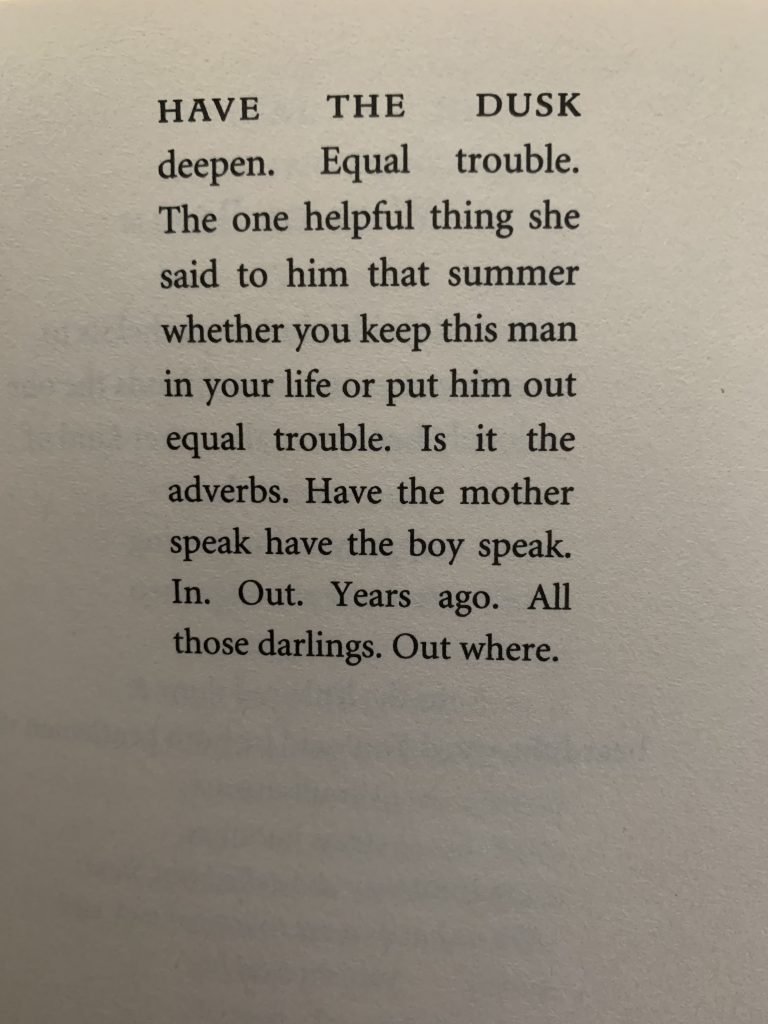
9. “Blue Horses: Poems” by Mary Oliver
“Blue Horses: Poems” like many of other Mary Oliver’s other poetry; depicts the ephemeral beauty of nature.
From trees to different bird species as well as the artworks of Franz Marc – and thus, blue horses; Mary Oliver does not miss a thing and reveals universal truths in such a characteristically natural way.
Mary Oliver’s writing offers both clarity and beauty in perfect harmony. You are never wondering to yourself “Did I read that correctly?”
Furthermore, there is a feeling of peace and catharsis reading Mary Oliver’s works. I felt the same last year when I read another of her collection, titled, “Felicity: Poems.”
There is always a cathartic feeling at work.
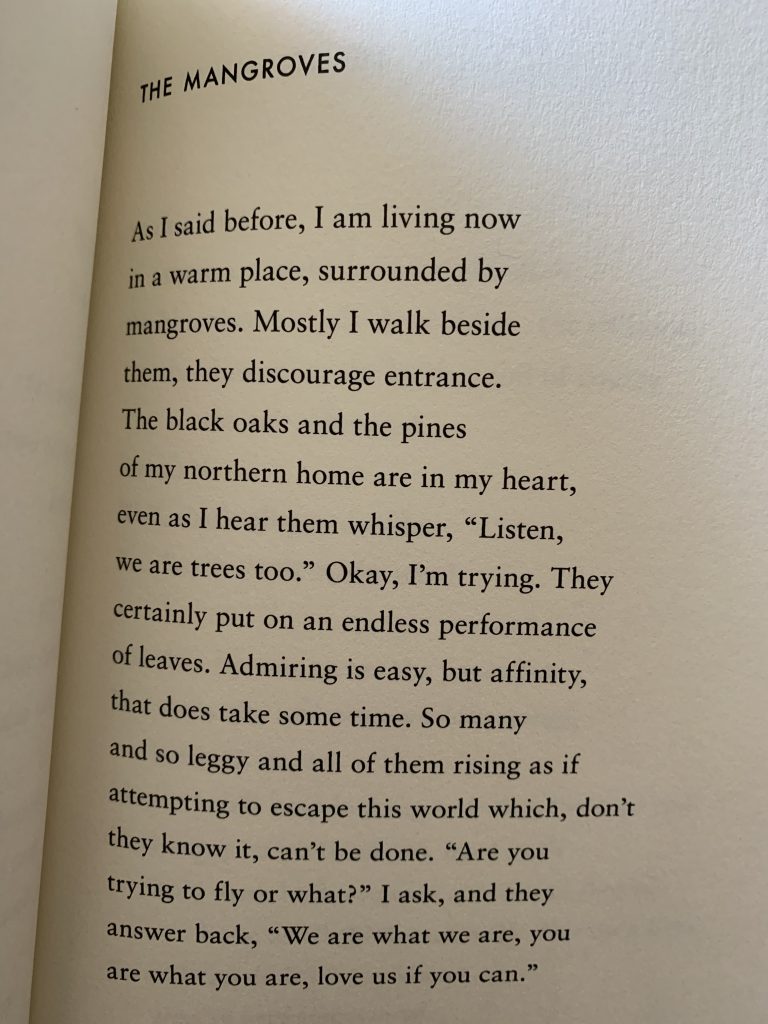
10. “She Must Be Mad” by Charly Cox
“She Must Be Mad” is a coming of age poetry collection with feminist undertones. Interesting enough, as she traces the path from girl to womanhood, Charly Cox also traces the seeds of mental illness. As well as mental health care. The topics discussed in this collection makes for an important read due to its mental health representation.
Additionally, Charly Cox talks about body image as well as disorders. She talks anxiety, depression, and madness.
There is also, coincidingly, the exploration of relationships and unrequited love as well.
Furthermore, the language employed is easy and straightforward to follow while still remaining rhythmic. The experiences highlighted by Charly Cox is very relatable in this modern digital age.
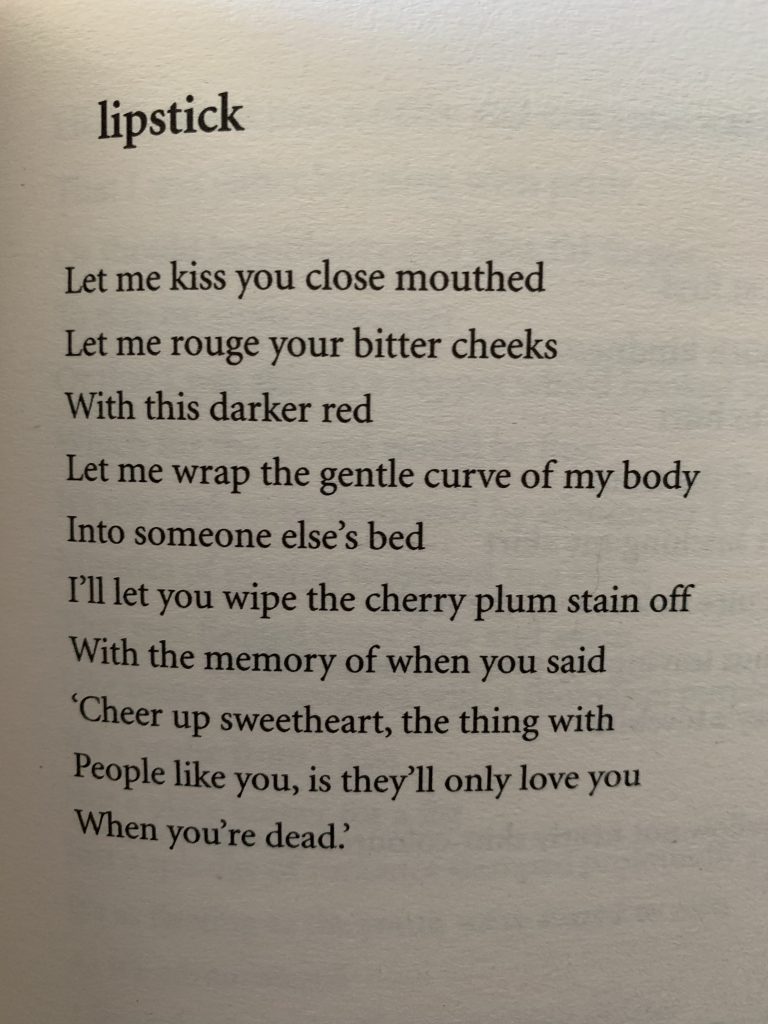
This concludes my top 10 modern poetry books I read in 2020. I hope you will enjoy picking up some of these poetry collections and please let me know of your own favorite poetry collections you have read and relished in!
As I said, I read a total of 90 books in 2020 including all of these poetry collections.
If you want more book recommendations and thoughts on the books I read in 2020 (unrelated to poetry!) you can read this blog post on the Top 20 Books I Read in 2020.
Love the post? Save Pin for later!

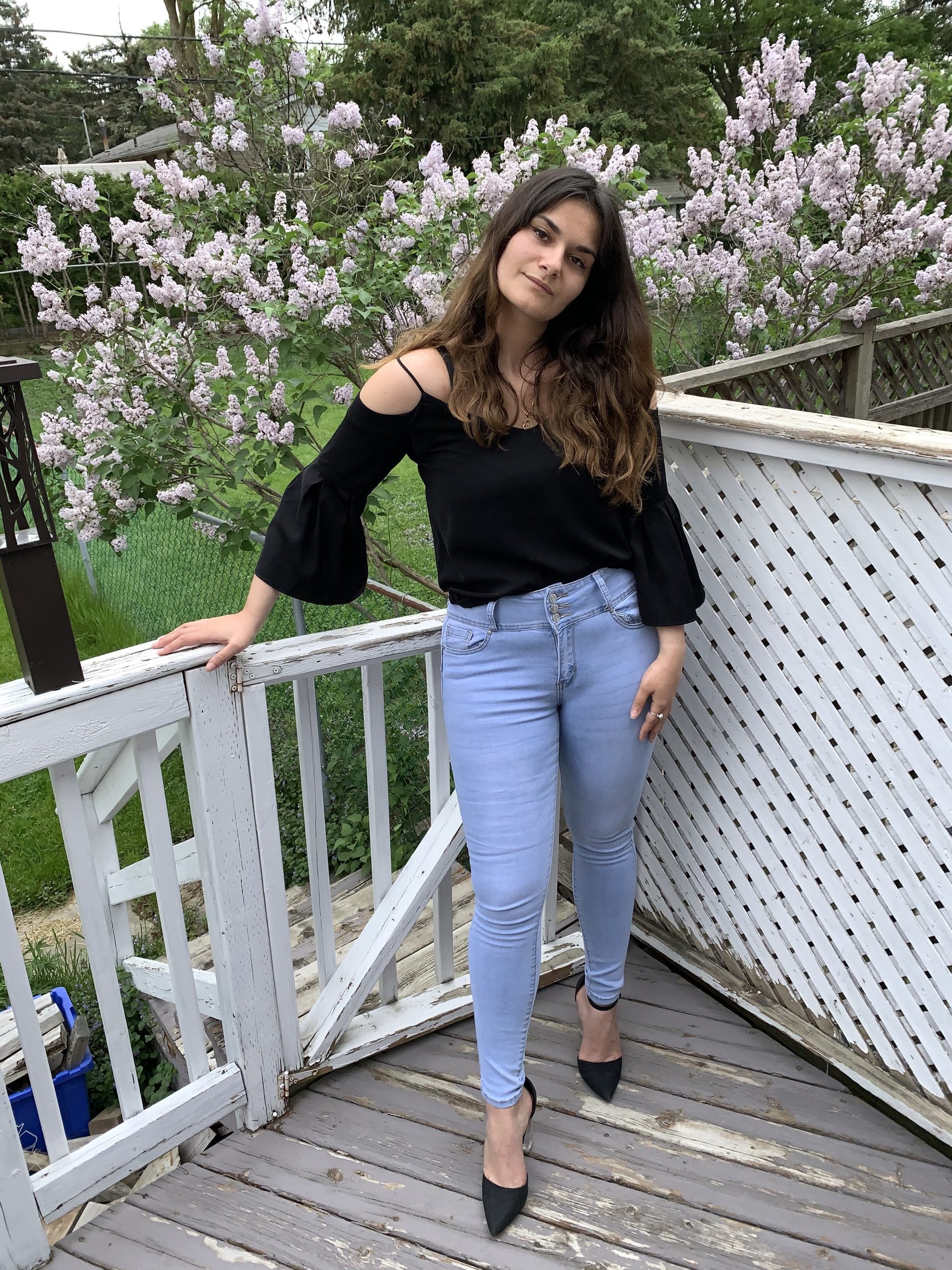











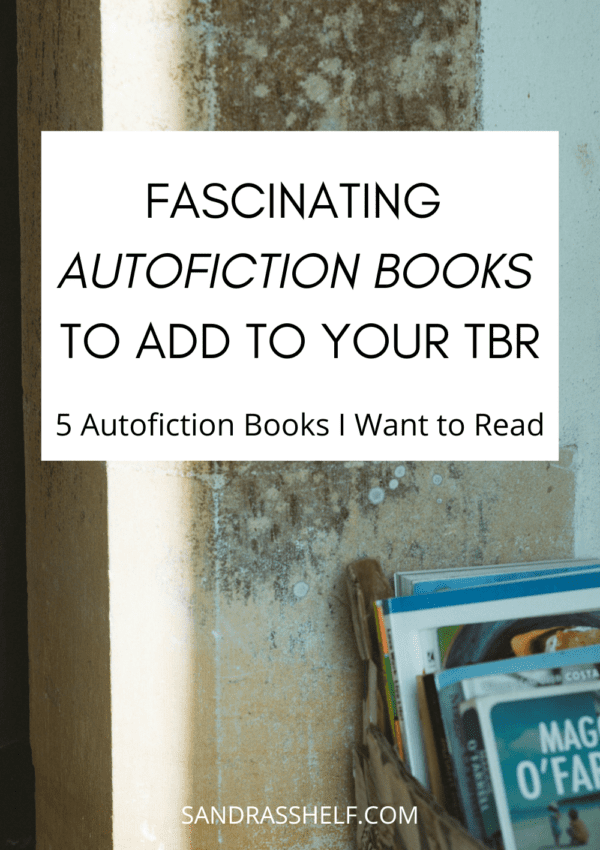
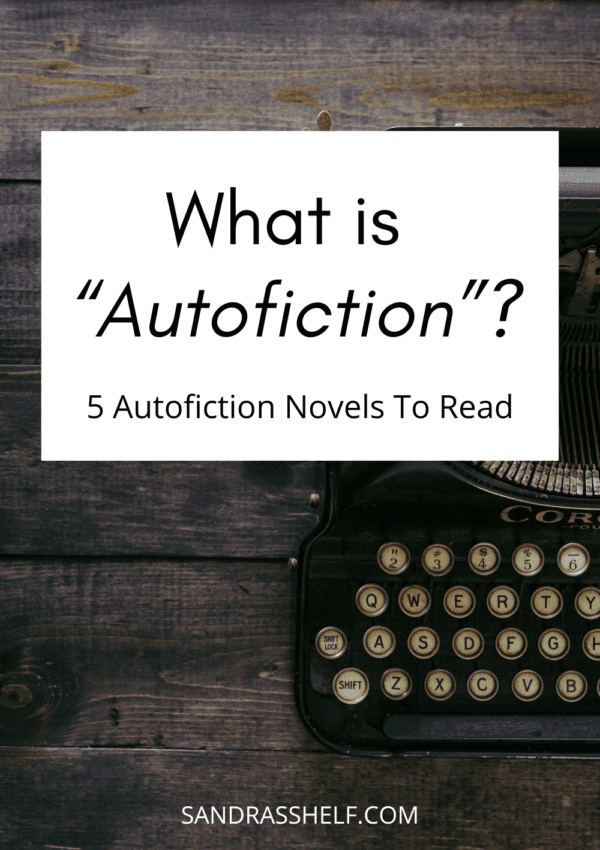

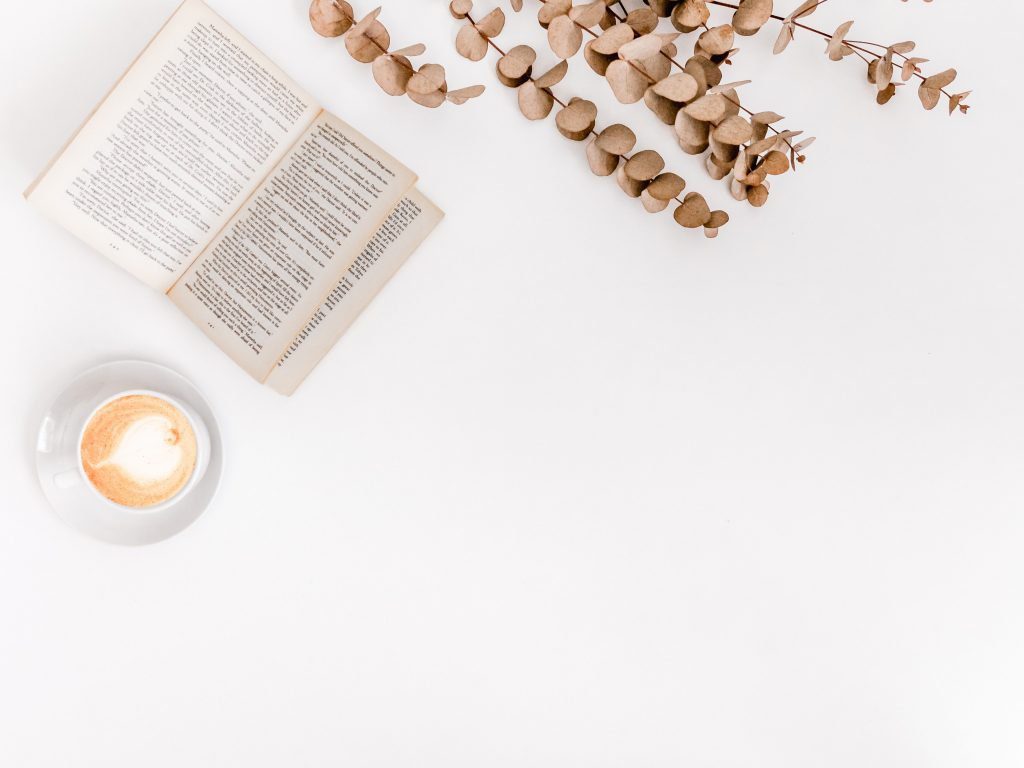
Leave a Reply